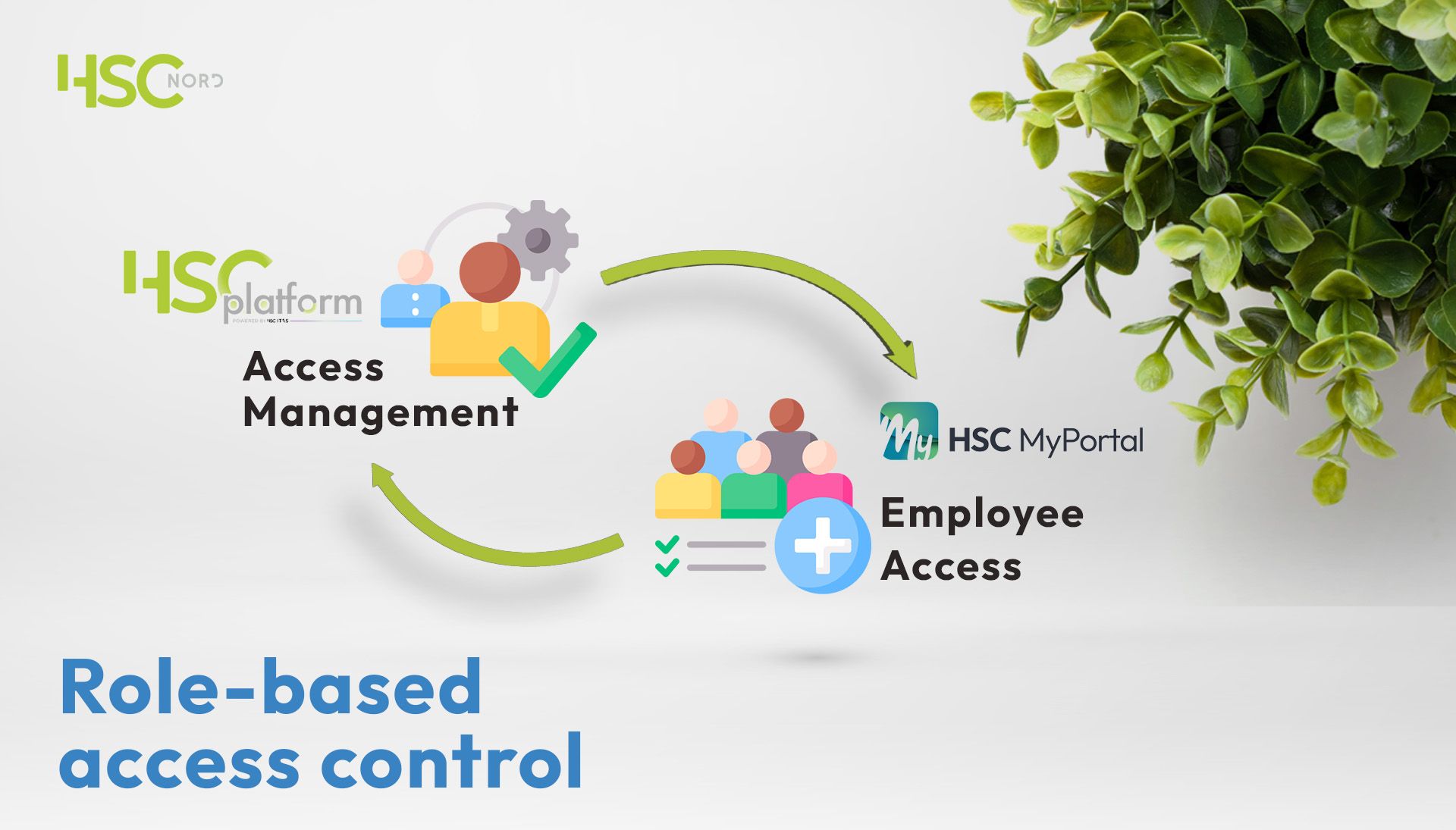
Why does HSC opt for role-based access control?
Role-based access control, or RBAC, is a paradigm for granting end-users access to platforms, apps, and data according to their predetermined position within the company. User roles provide the bare minimum of authority required to complete an assignment. Prior to defining which rights user roles would contain, companies must define the roles themselves, typically by classifying roles into two categories: administrators and end-users.
How does RBAC work within the HSCplatform?
HSCplatform, our compliance automation software, has MyPortal, a company hub for employees. Using role-based access control, only authorized personnel who have been granted permission can access particular data or carry out certain duties. In this case, the HSCplatform is reserved for administrators and MyPortal for employees. To further tailor different roles for certain user groups, more specific aspects like authority, responsibilities, and expertise are considered. A job title, location, and assignment may occasionally match the role exactly. Sometimes, users are given several roles.
What are the benefits of RBAC?
Clients using the HSCplatform can efficiently onboard employees, assign permissions, and preserve compliance with data protection rules.
✔️Employee onboarding—It is unnecessary to grant a unique set of user permissions to every single user. Rather, access privileges are determined by defined RBAC. Organizations can easily preadjust job roles and quickly onboard new staff members.
✔️Temporary permissions assigning —It is possible to grant access permissions to subcontractors, suppliers, and other external users. Giving a third-party associate access to the information they require will not reveal any of the company's confidential assets.
✔️Compliance maintenance— By restricting what a user can access, RBAC minimizes targeted data breaches as well as unintentional data loss while safeguarding sensitive information.
Do not miss the opportunity to try out our HSCplatform and see how it can transform your management experience.

 The Value of Partnering With a Versatile OHS Provider— Why a Multidisciplinary Approach Matters
The Value of Partnering With a Versatile OHS Provider— Why a Multidisciplinary Approach Matters
 Set Sail with Confidence – Your Guide to Seafarers’ Medical Examinations
Set Sail with Confidence – Your Guide to Seafarers’ Medical Examinations
 Having a safe workplace is a wise economic decision— Here's what you need to know.
Having a safe workplace is a wise economic decision— Here's what you need to know.
 Nord-EU AI Act
Nord-EU AI Act
 Empower Your Employees
Empower Your Employees
 Role-based Access Control
Role-based Access Control